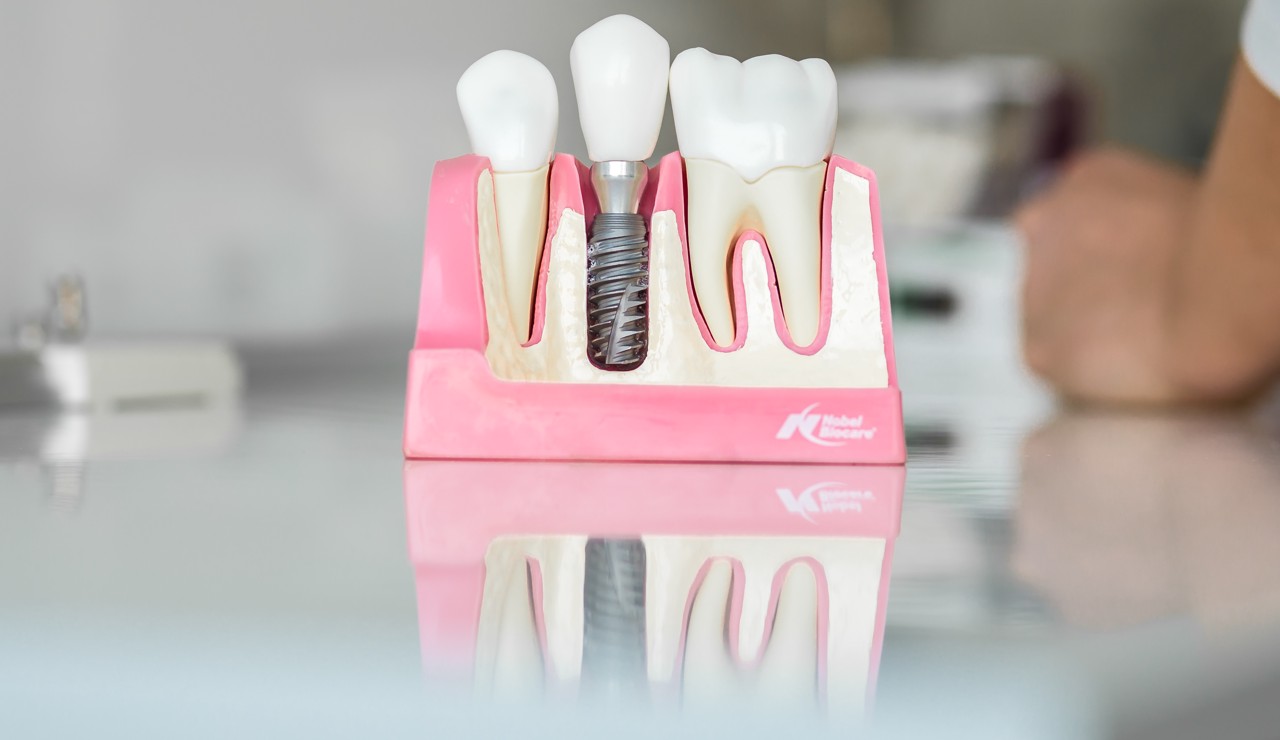The Ultimate Guide to Implants: Part 1

We understand that the decision on major dental procedures is not made on a shortcut, but that such a decision takes time and thought to decide on the type of treatment that is in line with needs and expectations.
That's why if you think implants are the right choice for you, and you still have some questions - this ultimate guide on implants gives the answer to all of them.
This guide consists of two parts:
In the first part, you will find out the most common questions that our patients ask before starting the procedure.
In the second part, we will explain how you can decide which type of dental implant you need to choose and why.
Basic information about implants
What is an implant and how can it help me?
An implant is a substitute for a lost tooth root. It is made of titanium, which is biocompatible, which means that the human body will not reject it. Implants are a long-term aesthetic and functional solution when one or more teeth are missing.
Does implant placement hurt?
You do not need to worry about pain because the placement of implants is completely painless, since it is performed under local anesthesia. This guarantees a carefree course of the installation process and without obstacles.
How do I know if I am a candidate for an implant?
Almost anyone who is missing one or more teeth can receive a dental implant. During your first consultation, our dentists will examine and determine the general condition of your oral health and oral cavity, your health status, and the structure and quality of the remaining bone. Based on this, they draw up a treatment plan for your specific situation.
What types of implants do you use in Dentum?
For our patients we use only proven implant systems with a long-standing tradition such as:
- Nobel Biocare (Sweden)
- Straumann (Switzerland)
The success rate of these dental implant systems is 96 to 98%. With proper hygiene, regular check-ups and professional cleaning, they should last forever.
How do I maintain my implants?
Your implants should be maintained the same as your natural teeth. This means that it is necessary to perform complete oral hygiene using dental floss, toothbrush, interdental brushes and a dental shower. In addition, regular check-ups are crucial to ensure the durability of their implants.
Is there an age limit for dental implantplacement?
There are no age restrictions, except for children and young people who are still growing and developing. There is no upper age limit.
Are there possible complications in implant placement?
Although extremely rare, complications are still possible. However, even if this happens, the procedure can be successfully repeated without any consequences.
Complications with implant placement are extremely rare, but they are possible:
- If the patient does not comply with the instructions on oral hygiene, infection of the bone and soft tissues around the implant is possible due to the accumulation of food and tartar (peri-implantitis)
- In smokers and diabetics, the success rate is reduced by 10%
- With strong systemic diseases
However, in Dentum you can be sure that the listed risks are reduced to an absolute minimum. That is why we offer free consultations, in order to correctly assess the condition of your oral cavity and design a treatment 100% according to your needs, wishes and state of health.
What happens after the implant is placed?
After implant placement, a waiting period of 6 to 8 months is required to complete the treatment, depending on the situation. During this time, detailed oral hygiene and regular check-ups are of utmost importance.
What is artificial bone?
If bone is missing at the implant site, the bone is replaced by artificial bone to secure the implant. The bone can disappear due to all conditions that lead to tooth loss. Artificial bone is almost completely replaced by natural bone, and this procedure takes about 6 months.
7 advantages of choosing implants over other solutions:
- It is not necessary to grind healthy neighboring teeth
- Implants preserve bone and gum height at the site of placement, unlike other prosthetic solutions
- If you are missing most or all of your teeth, a fixed prosthesis can be made either in the form of a bridge or denture supported by implants
- No more falling out of dental prostheses and potentially unpleasant situations
- Talking and eating are almost perfect.
- After a short adjustment period, you will not notice the difference between your natural teeth and implants
- Implants represent the very pinnacle of dental medicine and ensure optimal quality of life and a radiant smile
Now that you know all the answers to the questions we are asked most often, we invite you to continue reading the second part of this ultimate implant guide. In the second part, we explain how you will choose the type of implant that will suit your needs, which you need to pay attention to when making a decision.